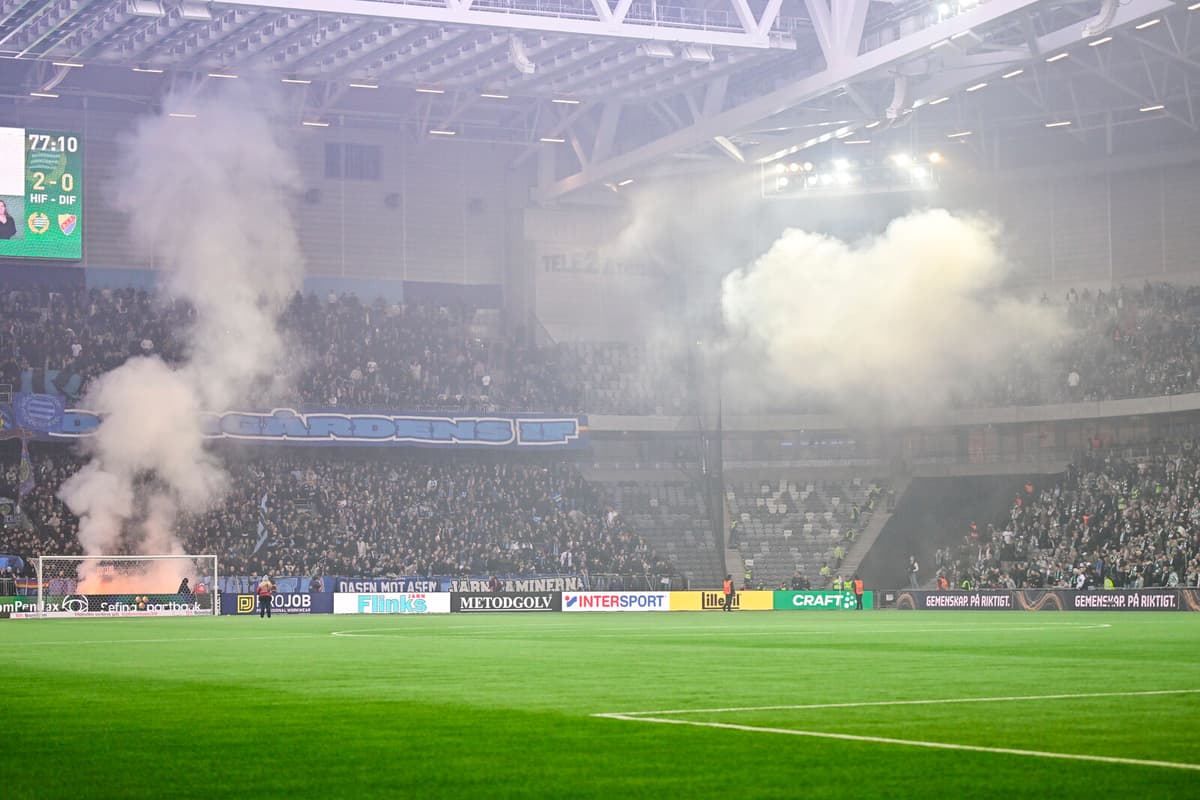In the wake of the interrupted Stockholm derby between Hammarby and Djurgården, numerous critical voices have been raised from various quarters about football's problems with spectator chaos and the most hardcore supporter groups.
One of them was the Minister for Sports, Jakob Forssmed (KD). The Minister is calling for, among other things, a cultural change where players and leaders do not downplay or trivialize "dangerous behavior in the stands".
In a written statement, Djurgården has indeed condemned the actions of certain supporter groups. But generally, representatives from football's various associations are cautious in how they express themselves.
This is according to Fredrik Gårdare, former head of the police's action group against criminal activity in sports.
And for several reasons.
Partly, the most dedicated supporters generate significant revenue for the association. Just that supporter environment also contributes to and raises the atmosphere, making the events more enjoyable, he says.
Knife in the door on Christmas
A third perspective is that those who speak out risk threats.
Patrons in letters. Punctured tires on the driveway. They're advanced things they're dealing with, and unfortunately, they've always been very successful in intimidating the associations.
According to Gårdare, chaotic football matches have been normalized over many years.
That 350 police officers should work on matches every week during the football season has become a matter of course. It's normalization, exhaustion, and resignation that this just keeps rolling on year after year, says Fredrik Gårdare.
Dialogue-based solution
That individual supporters in a sophisticated way manage to break matches when the results go against them is a new phenomenon now emerging in Sweden, claims Anders Almgren.
He is the operations manager at Enable Sweden, an independent organization that collaborates with representatives from football, supporters, and the police for safe football events.
It's too early to call it a trend, but it's important to consider whether this is something that's setting in and how to stop it, says Almgren.
He believes in a dialogue-based solution. Where the most hardcore supporter groups are also included.
In the debate, it's often portrayed as if the supporters are completely impossible to talk to. But that's not the case. The supporter environment is talkable, as long as you understand how to talk to them, says Anders Almgren.






